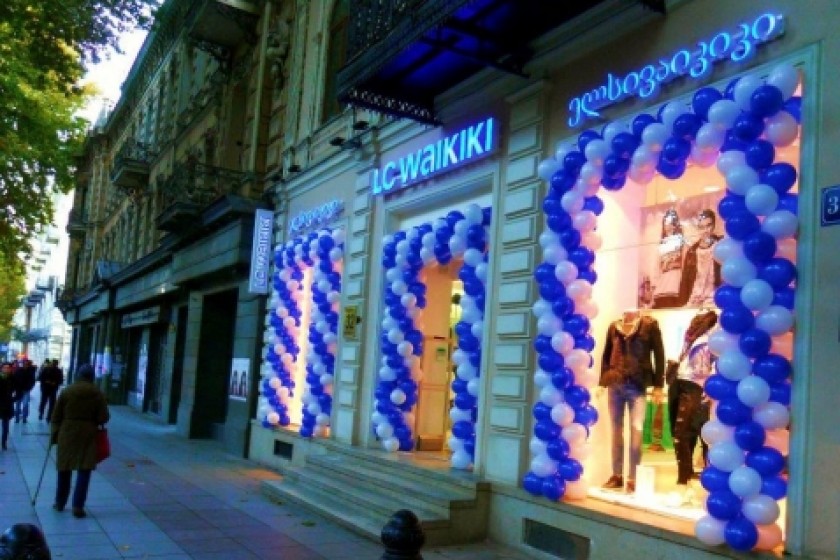
Those Who Sew Do Not Reap Profit
By Nino Bakradze
You don’t have to go to Southeast Asia to find sweatshops where workers toil under harsh conditions to make clothing for rich Western consumers. A reporter for the Organized Crime and Corruption Reporting Project (OCCRP) posing as a textile worker found such conditions in the Republic of Georgia.
Conditions are ripe for abuse in the country of 4-plus million which has no separate labor ministry, no labor inspectors, and an embarrassingly low minimum wage, yet OCCRP found two Kutaisi textile factories that manage to break what labor laws do exist.
Meanwhile, Georgian officials point to the weak protection laws as evidence of their “business friendly environment.”
JSC Imeri is a Georgian-owned factory that produces high-end women’s coats for major Italian and Germany clothing companies. LTD Georgian Textile is a Turkish-owned company that supplies the LC Waikiki clothing store chain.
A reporter worked for two days in each factory in August. Hired on a trial basis, the reporter did not identify herself to managers as a journalist. The reporter learned that unpaid overtime work is routine and neither factory gives its workers the number of holidays required under Georgian law.
The reporter also learned first-hand that conditions can be harsh in the summer heat, with dust-filled air, poor ventilation, few opportunities for water or toilet breaks and some supervisors who don’t speak the Georgian language.
According to the Georgian Labor Law passed in 2013, factory workers should receive overtime pay if they work more than 48 hours a week. Neither JSC Imeri, with a regular six-day work week, or LTD Georgian Textile which works five days, pay overtime for hours worked on regularly scheduled days, although the workers are required to stay extra hours on the job several nights a week until the daily production quota is met.
The labor law requires that workers receive 17 holidays each year. At these two factories, workers receive only six holidays.
At least JSC Imeri and LTD Georgian Textile don’t violate Georgia’s minimum wage law. That would be almost impossible. The minimum wage has been $11.50 a month since a 1999 decree by former president Eduard Shevardnadze.
That’s not to say wages are high at the two Kutaisi factories. At LTD Georgian Textile, the average wage is 66 cents per hour. At JSC Imeri, it’s 86 cents per hour.
The Clean Clothes Campaign, a European worker-advocacy project, in May released “Stitched Up,” a survey of the textile industry. It included factories in Turkey, Bulgaria, Romania, Macedonia, Moldova, Ukraine, Bosnia and Herzegovina, Croatia, Slovakia and Georgia. Only Georgia had no realistic minimum wage.
Ukraine’s was the next lowest at € 80 per month (US$ 101); Croatia was highest at € 308 per month (US$ 390). The survey singled out Georgia as a country where a “legal rights protection system and institutional mechanisms such as labor inspection and labor court barely exist at all.”
What is the Georgian government ’s position on such labor issues?
 Videos
Videos Photos
Photos




Write a comment